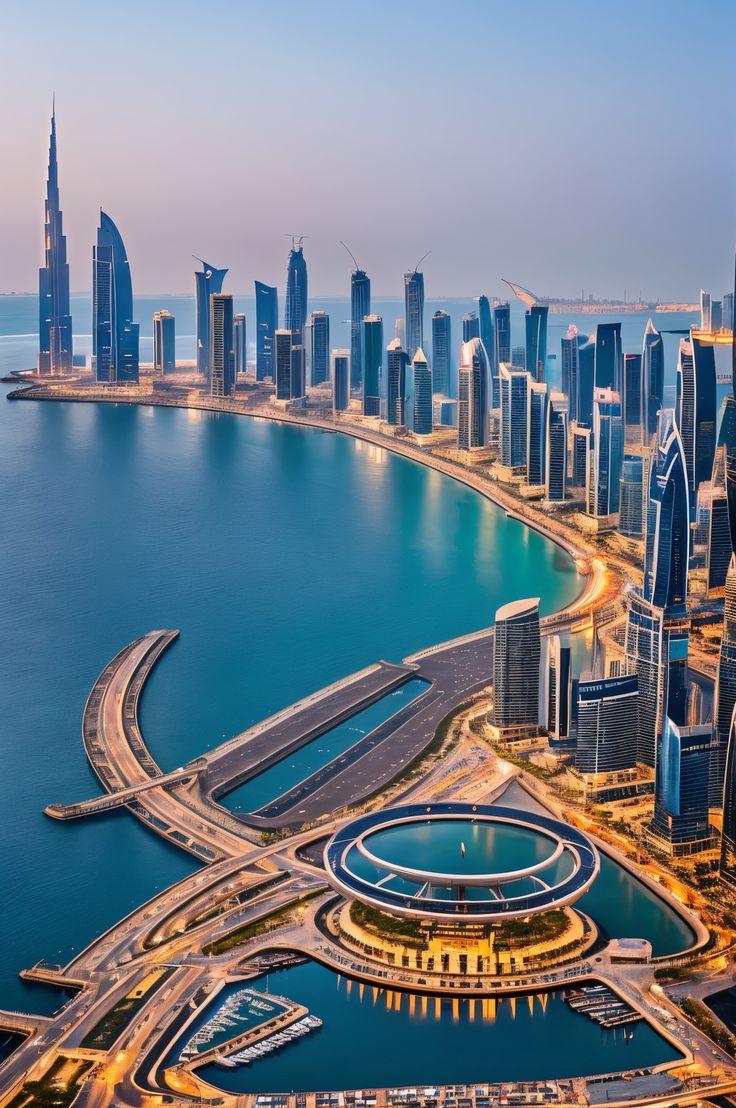Cultural Etiquette Every Traveler Should Know Before Visiting the Middle East
The Middle East is one of the most fascinating regions in the world, rich in history, traditions, and cultural practices...

The Middle East is one of the most fascinating regions in the world, rich in history, traditions, and cultural practices that have been preserved for centuries. Travelers often fall in love with its contrasts: modern skyscrapers rising beside ancient mosques, bustling souks alongside luxury malls, and diverse communities sharing traditions that remain deeply respected. However, for first-time visitors, understanding cultural etiquette is not just about courtesy—it’s a way to fully immerse yourself in the experience while showing respect to local communities.
Respecting Dress Codes and Traditions
One of the first things to be mindful of when traveling through the Middle East is clothing. Each country has its own level of conservatism, but in many destinations, modest dress is appreciated, especially in public spaces or religious areas. For example, the Dubai dress code for females emphasizes wearing outfits that cover shoulders and knees in most public areas, even though Dubai is known for being more liberal compared to other cities in the region. Adhering to local dress customs not only shows respect but also helps travelers feel more comfortable blending in with the environment.
Beyond clothing, certain gestures and behaviors can carry different meanings. For instance, using your right hand when greeting or offering something is considered polite in many Middle Eastern cultures. It’s also common to remove shoes before entering someone’s home. Small details like these demonstrate cultural sensitivity and make interactions with locals much smoother.
Communication and Social Etiquette
Language is another important element of etiquette. While English is widely spoken in cosmopolitan areas, learning a few words of Arabic such as “Shukran” (thank you) or “Marhaba” (hello) can go a long way in building goodwill. Respectful greetings and warm hospitality are highly valued in the region, and visitors who make an effort are often welcomed warmly.
Public displays of affection, however, should be kept to a minimum, especially in traditional communities. What might feel casual in Western countries may be considered inappropriate in Middle Eastern cultures. Likewise, being mindful of topics in conversations—avoiding sensitive subjects like politics or religion unless invited to discuss—helps maintain harmony in social settings.
Understanding Local Institutions and Formal Etiquette
Many Middle Eastern cities serve as international hubs, home to consulates, embassies, and global organizations. For instance, the Consulate General of Afghanistan Dubai plays an important role for citizens living abroad or those traveling in the region. When dealing with such institutions, formality, patience, and respect for official processes are essential.
At the same time, travelers should be aware that Middle Eastern countries balance tradition with modernity. Dubai, for example, is an excellent case study. It is one of the most visited cities in the world, known for its futuristic skyline, luxury shopping, and cultural diversity. Yet beneath the glamour, traditions are very much alive. Visitors who respect these traditions—whether it’s dressing appropriately, showing courtesy in public spaces, or respecting religious customs during events like Ramadan—find their travel experience far more rewarding.
Dubai: A Gateway to Middle Eastern Culture
Dubai has become a global hub, attracting millions of travelers each year. Beyond its modern attractions like the Burj Khalifa and Palm Jumeirah, it offers rich cultural experiences that showcase the Middle East’s heritage. Walking through the historic Al Fahidi neighborhood, exploring the spice and gold souks, or taking a traditional abra ride across Dubai Creek allows travelers to glimpse a side of the city that connects past and present.
Dubai also exemplifies the balance between modern freedom and traditional values. While it welcomes international visitors with open arms, there are cultural expectations—such as modest attire, polite behavior in public, and observing local customs—that travelers should follow. By doing so, visitors not only show respect but also enhance their personal journey, creating memories rooted in cultural appreciation.
Dining Etiquette and Hospitality
Food is central to Middle Eastern culture, and dining customs carry special significance. In many households, guests are treated with incredible generosity, often offered more food than they can eat. Accepting this hospitality with gratitude is essential. It’s customary to use the right hand for eating and to wait for the host’s invitation before beginning a meal.
During the holy month of Ramadan, visitors should also be mindful of fasting customs. While non-Muslims are not required to fast, refraining from eating or drinking in public during daylight hours is a sign of respect for those observing the fast. Many restaurants still serve meals discreetly during the day, and after sunset, the city comes alive with Iftar celebrations, offering a truly unique cultural experience.
Gender Roles and Social Norms
Travelers should also be aware of social norms related to gender. While Middle Eastern societies vary in their approaches, respecting boundaries is crucial. Separate seating areas or queues for men and women may be common in some places. Women travelers will find Dubai and many Gulf cities safe and welcoming, provided they observe local expectations, especially when it comes to attire and behavior in public.
In family-oriented societies, it is also considered polite to acknowledge and greet both men and women when meeting a household. However, physical contact such as handshakes may not always be expected between men and women, so it’s best to wait and follow the local’s lead.
Final Thoughts
Traveling to the Middle East is an enriching experience, but it becomes even more meaningful when visitors approach it with an open mind and a respectful attitude. From dress codes to dining etiquette, every cultural detail provides insight into the values and traditions of the region. Dubai, as a global crossroads, showcases how tradition and modernity can coexist harmoniously, offering travelers a unique gateway into the Middle Eastern way of life.
By respecting local customs, embracing traditions, and approaching your journey with curiosity, you not only avoid misunderstandings but also create opportunities for deeper connections with the people and places you encounter.







